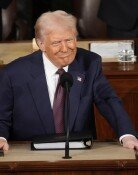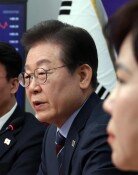[Opinion] Kingdom of Public Exams
[Opinion] Kingdom of Public Exams
Posted December. 14, 2003 23:13,
There are only a few countries which hold public office examinations. However, the public exams in Korea are becoming only increasingly powerful day by day which gives the countrys the nickname of kingdom of public office examinations. Since the job search season is near, the atmosphere in the classrooms of graduating seniors is quite tense. One cannot find hopeful expressions on their faces of their freshmen years any more but only troubles on their mind about how to set their lifes course and which kind of jobs to take. The seniors who have been hired already look more or less relaxed, but others who do not know their near-term future look only anxious.
There is a sufficient reason: the unemployment rate for youth has reached eight percent. That is why there is a significant increase in the number of students taking the public office exams. Natural science students are not exceptions in this zeal for public office exams, and it is such a regretful matter to see them give up on their dreams of becoming a scientist in their early years of university. The exams are not only the conventional three types any more. Exams for press and media industry are called, Press Public Exams, and exams for chaebol corporations are now called, Entrance Public Exams. However, the students who have passed the exams are scarce. It is the same truth of the old days and of today that the public exams are all difficult to pass.
The public office exams are the modern versions of state examinations during the Josun dynasty. The sons of Yangban noble class had to take the state exams whether or not they liked the idea. The present Changduk palace site was where they used to hold the exams, and it is said that the whole town of Hanyang (Seouls old name) was crowded with the sons of Yangban from all around the country. However, the people who passed the exams were only a few including the first place, the second, and the third. The rest of the candidates had to return to their hometowns, promising for the next exam. There were many people who preyed on the candidates. Those were printing workers who fabricated the kings letter and the horse piece (the proof of the passing). They allured the failed candidate on the way back to their homes waiting for them in Wangshipni and Jamsil and made money with the fabrication. The fake letters and the piece kept valid for a longer period of time as the distance of their hometowns were further away from Seoul. Of course, there were no exceptions that it was revealed later on and caused the entire family a big problem.
There now is some sort of public exam candidates in literature as well. It is called a preparatory class for literary contests in spring. Until the mid 1980s, the literary contests in spring were the object of irresistible excitement. The prize-winning entries of the contests were the reasons why many writers or writer wannabes could not go to sleep easily on the night before the New Year and its early morning. The youthful writers will not forget the very moments that they held the magazine in their hands with somebodys passion and agonies that lasted for the whole year in the creation of literature in print. However, the lonesome creation by oneself of literary contests has now moved into a village of public office exam takers in this era of the internet. There are now courses opened for literary contest runners and classes aiming at the contests which are professionally managed. If another village of public exam takers for the literary contests in spring emerges, Korea will be the kingdom of public exams one way or the other.
Song Ho-keun, Visiting Editorial Writer and Professor of Seoul National University,
hknsong@snu.ac.kr







